The handmade boots at David’s Western Wear, a short walk from the Nogales pedestrian crossing, have for 44 years been a favorite of customers on both sides of the US-Mexico border.
David Moore says about 99% of his customers were from Mexico before the Covid-19 border lockdown; about 70% now.
“A lot of it is because it is harder to go back and forth across the border,” Moore told us in an interview at his store. “Wait times are, like I said, just ridiculous.”
Walk a bit down Morley Avenue toward the border and the last shop on the right is Kory’s Bridal. It is the first business you see if you come from Mexico to Arizona through the Nogales pedestrian border crossing.
“We’ve always depended on our Mexican neighbors to support our local economy, and we’ve seen the ups and downs through the years,” Evan Kory said in an interview in a shop packed with white bridal gowns and bridesmaid dresses in every imaginable style and color. “Currently, we’re seeing a very difficult time where border crossing is more difficult and time consuming. So, we don’t see the same type of business that we’re used to.”
Our visit to Arizona is the latest in a CNN project tracking the 2024 campaign through the eyes and experiences of voters – in this case, in a state Joe Biden flipped blue in 2020. Tough talk on immigration and the border is a Donald Trump calling card, and voters have raised it as a top issue in each of the seven states we have visited previously.
Here, the issue is local and often personal. Moore and Kory, for example, are quick to name favorite restaurants they walk to in Mexico. So the border and immigration conversation tends to be different from what your hear on cable news, from Trump and his hardline allies or from most of the former president’s liberal critics.
It is more polite, more nuanced, and more focused on solutions than slogans.
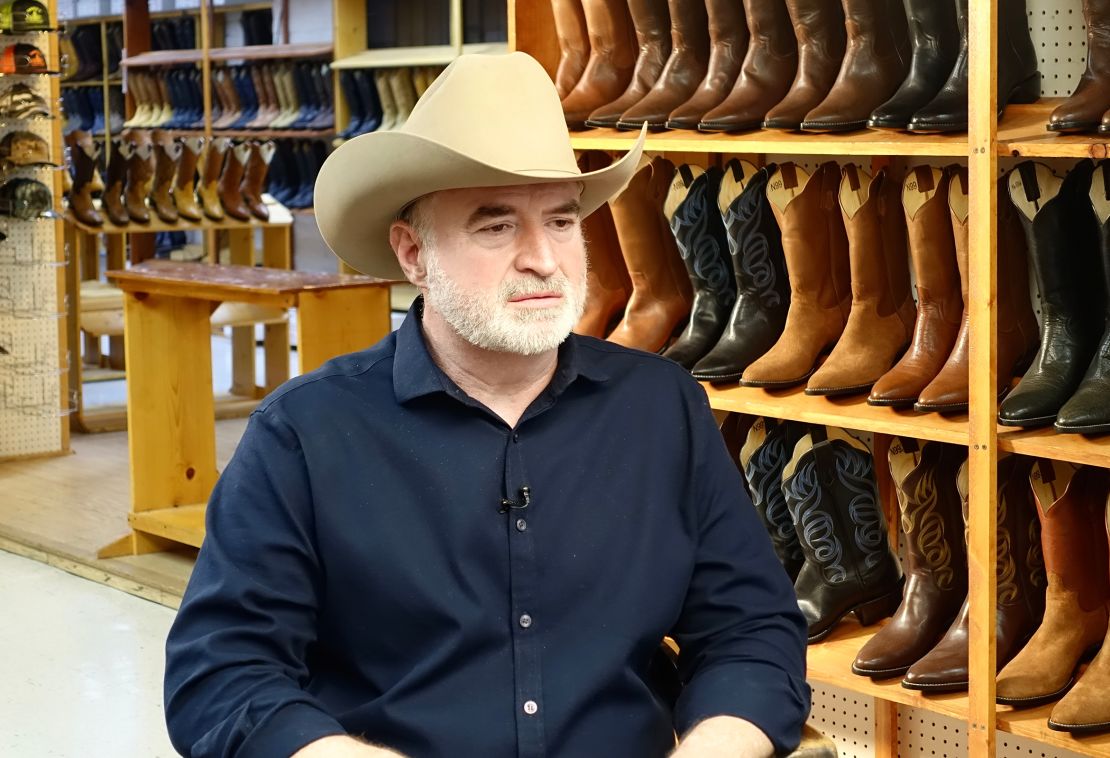
Moore, for example, said the border wall works, wants more Border Patrol and other personnel to speed up legal crossings and attributes the higher number of border encounters during the Biden presidency to a broken asylum process.
“I don’t know how that works – that people from Africa are coming in through Mexico, up through the Mexican border,” Moore said. “I would want them to regulate that a little more.”
But Moore, a registered Republican, said he is almost certain to vote for Biden, as he did in 2020. Trump’s divisive language about the border and immigrants offends him and hurts his business.
“My livelihood depends on the people coming across the border,” Moore said.
The presumptive GOP nominee’s recent comments that undocumented immigrants are “poisoning the blood of our country” are particularly offensive to Moore.
“My mother was born in Mexico, and she came across the border legally,” Moore said. “That is a poison I can deal with, I guess.”
Moore doesn’t agree with the harsh terms Trump and his Republican allies use when they talk about the border, which he says has cost him: potential customers call and say they are worried about making the trip to Nogales.
“People from everywhere do that,” Moore said. “Why do they? Because when they say on the news that the border is a war zone, those are the images. They think it is unsafe.”
Again, it is important to note Moore and Kory don’t dispute the border is in crisis and that more security would help. They just see the political rhetoric as exaggerated and alarmist.
“My home’s not a war zone,” Moore said. “We’ve been here for a long time.”
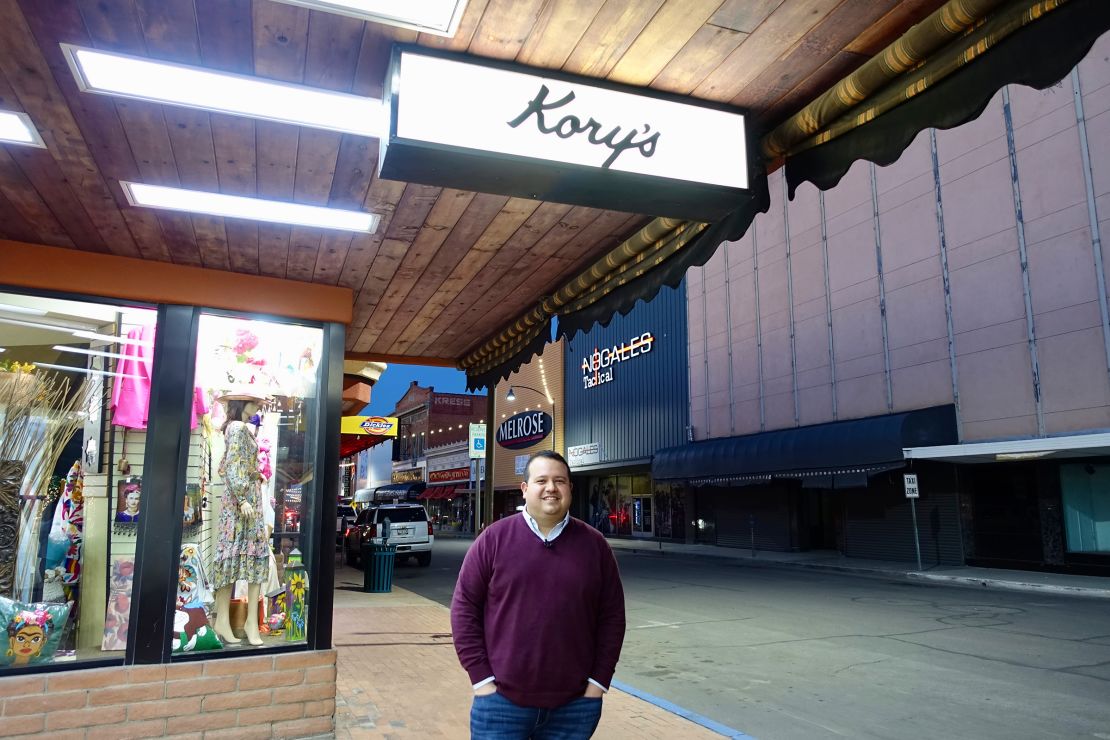
Kory’s family has been here a longer time, running the bridal shop and a nearby shoe store for 77 years.
Like Moore, he rejects the “war zone” talk.
“It’s a complex place where two countries meet to create a beautiful culture and a beautiful area,” Kory said. A Democrat, he bristles at Trump’s language. But he also bristles at fellow Democrats who oppose more funding for Border Patrol and other security measures.
“That’s equally frustrating, too, because you have to have a balance between all the needs and find a way to somehow work together,” Kory said. “Any time you go too extreme, especially with an issue as complicated as border security or immigration, anytime you do that you miss out on potentially finding solutions that may be from the other side of the spectrum.”
‘They speak in two tongues’
Nogales is part a 262-mile stretch designated the Tucson Sector by the Border Patrol. It is by far the busiest of the nine US-Mexico border sectors for illegal crossings and apprehensions.
The wall – 18-feet to 20-feet high in most places – is intimidating, but not foolproof. Immigrants find their way across, through gaps and otherwise, and it is not uncommon to see abandoned clothes and belongings just steps into the US side. There are signs along roads and paths that lead to the border warning about illegal smuggling.
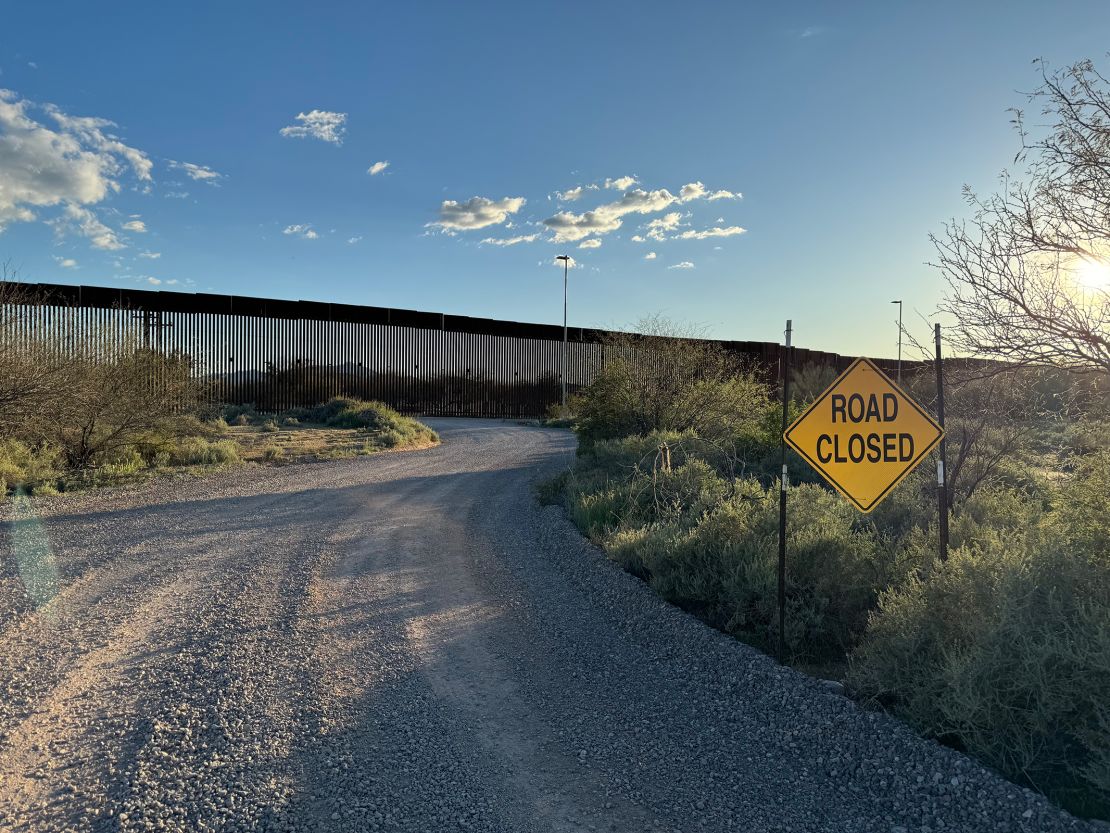
For years, Faith Ramon would smuggle migrants inland anyway.
She was reeling from “a very ugly divorce,” losing her home and her job and had moved back onto Tohono O’odham Nation tribal lands, mired in a spiral of addiction and what she described as a “deep depression.”
“I needed money,” Ramon said in an interview outside a church and gathering place on tribal land. “I needed money quick. And because of my alcohol and my addiction, I just went to a party, met some friends. They offered me some quick money. I took it. And it was so easy. It was so easy. I did it again. And I did it again. Sure enough, I was doing it for years because of it being so easy.”
And then she got caught.
“My luck ran out,” Ramon said.
A felony conviction set her on the path to sobriety, and she relied on tribal friends and rituals for support, including sweat lodge ceremonies. One night, she said some tribal elders were weeping while “praying for the land and the water” at a ritual. The border again became central to her life.
“That was the very first time I heard that there was a border wall that was going to be built on the reservation, separating and destroying some of our sacred sites, one of our sacred water springs as well,” Ramon said.
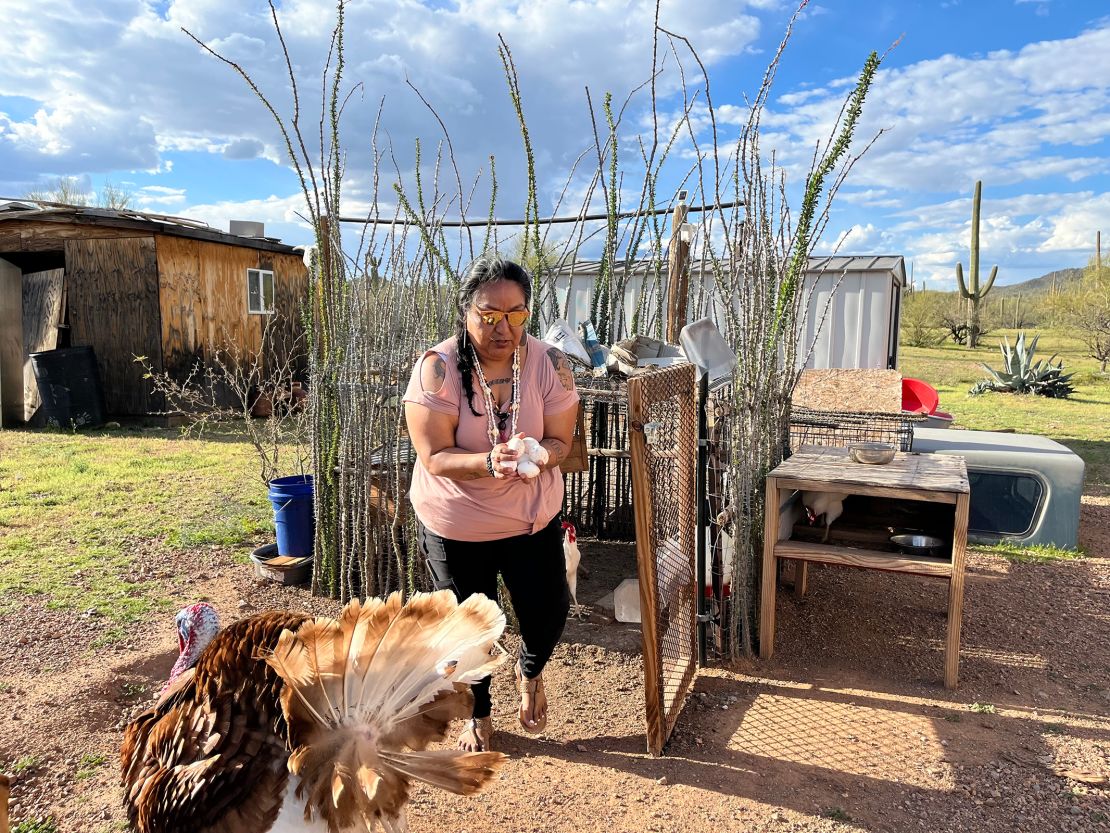
Ramon is eligible to have her voting rights restored and, assuming the process goes well, plans to cast her first vote for president this November, in battleground Arizona.
“I will vote for Biden,” she said. Water rights is one of her new passions and she likes Biden’s climate policies. Plus, she said, Trump is not an option.
“I don’t like the fact that our reservation was destroyed by, how I see it, what, from my perspective, is pretty much a racist wall,” Ramon said.
Her work for a nonprofit includes registering voters, and Ramon hopes to sign up tribal members who share her anger at the wall that divides Tohono O’odham lands. But she said many elders see voting as a waste of time.
One elder, she recalled, said of politicians: “They speak in two tongues. They tell you what you want to hear but there is no one holding them accountable for what they say.”
The temptation of third-party candidates
Biden carried Arizona by just over 10,000 votes in 2020, and his margins in the south-central part of the state were crucial. Nogales is in Santa Cruz County, where Biden received 67% of the vote. Tucson is in larger Pima County, where his share of the vote was 59%.
It will likely take similar margins for Biden to carry Arizona again, and our visit brought reminders that third-party candidates like Robert F. Kennedy Jr. could have an impact.
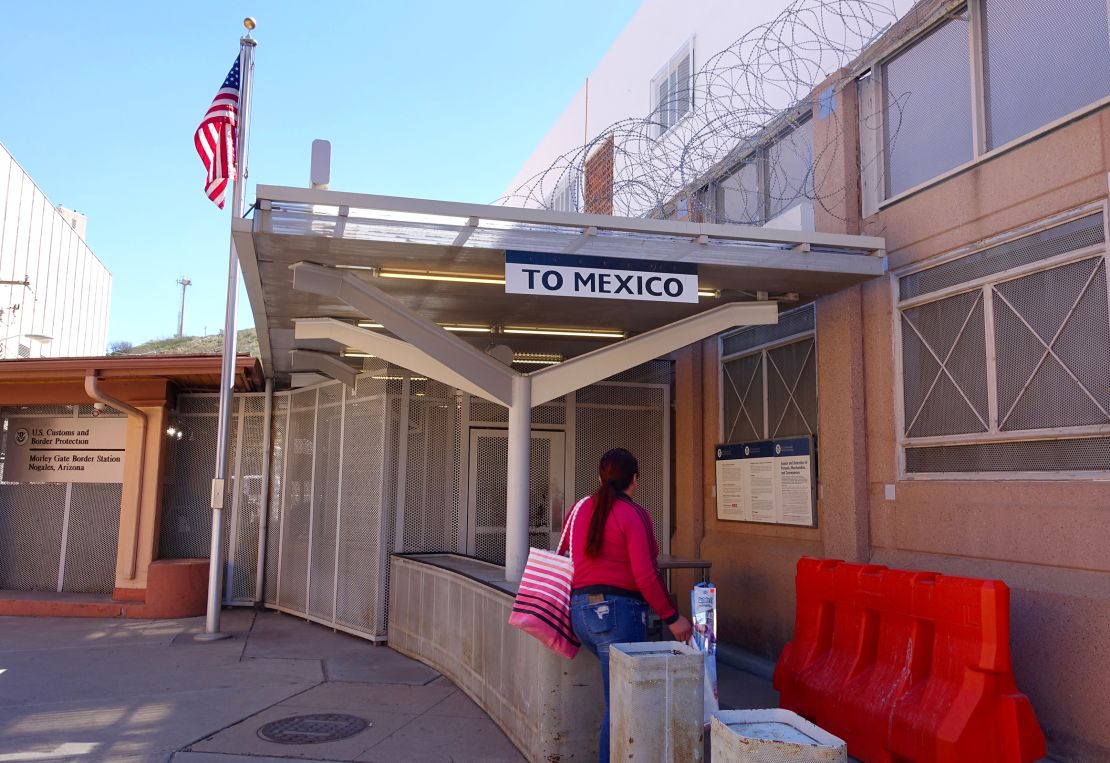
Also clear, though, is that many voters are mindful of Arizona’s battleground status and role as one of a handful of states likely to decide the Electoral College winner.
Melissa Cordero is one of those.
She is a Guam native and an Air Force veteran who voted for Trump in 2020.
“I was a small business owner at the time,” Cordero said. “Where I supported him was how he was making the bureaucracy around setting up a small business a little more streamlined. That was important to me at the time.”
Now, Cordero said, she would never support Trump again, noting that her political views have evolved significantly as time passes from her military discharge and as she networks in her new jobat a conservation nonprofit and as a member of progressive veterans’ groups.
“A lot of it was because of Covid,” Cordero said. “I started more volunteering in my community once we came out of that whole thing, just to be part of all the efforts. …. That’s when I got into the local side of politics. That’s what rewired me.”
When asked to list any specific policy disagreements with Trump, Cordero said her new activism made her comfortable sharing a deeply personal story.
“Reproductive rights,” Cordero said. “You know, as someone who was raped, sexually assaulted, I had the opportunity to make that decision on terminating the pregnancy. I can’t imagine in future years to come if that happens to me again or to someone else not having that.”
Cordero, though, is not ready to commit to voting for Biden.
“My biggest issue with Biden is the Palestine issue,” she said. Cordero acknowledges a recent shift as Biden has been more critical of Israel and more aggressive in trying to speed up humanitarian help to Gaza. But, “I think we could have a lot more influence over what is happening there,” Cordero said. “War is so gross, you know. This isn’t even war, actually. This is just murder.”
Cordero said she would study third-party options. But if she believed in the end a third-party vote might help Trump carry Arizona, she laughed nervously and said, “I would vote for Biden.”
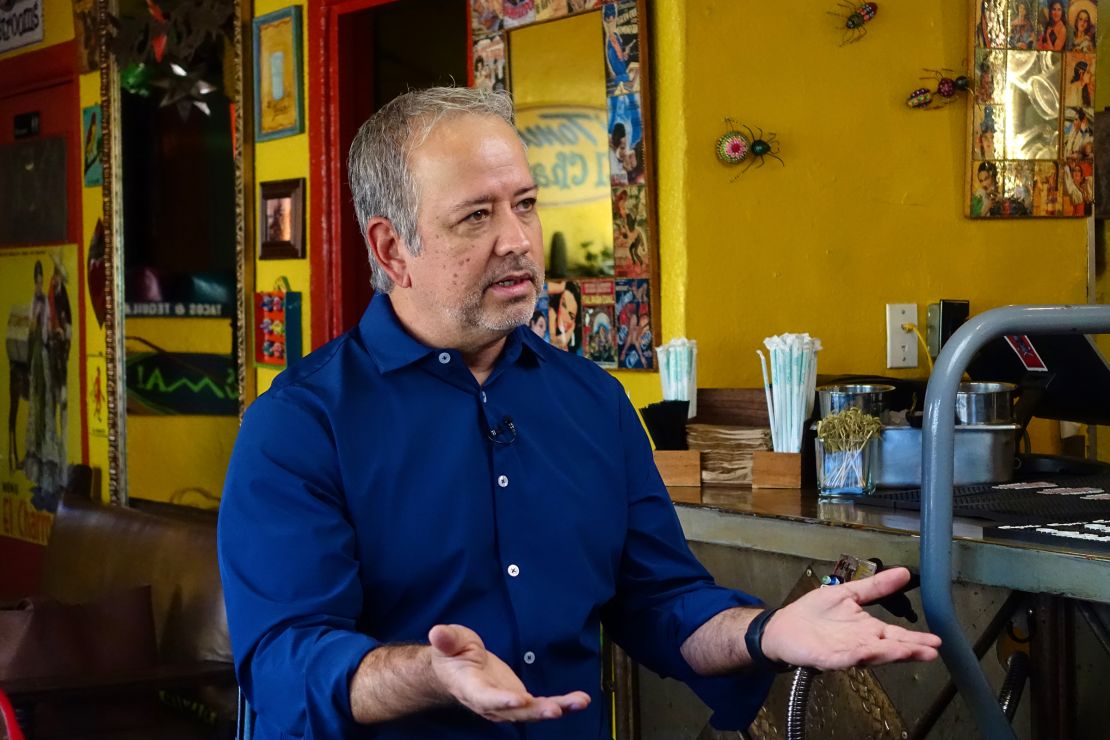
Ray Flores, too, told us he would consider a third-party candidate but said he had spent zero time looking at the likely options and their platforms.
“Pretty busy human being, haven’t really looked into that very much.”
Pretty busy is an understatement. Flores runs a handful of restaurants including El Charro, an historic Tucson café in his family for 101 years. El Charro is famous for its carne seca and, at least in local folklore the family would be foolish to dispute, as the birthplace of the Chimichanga.
Downtown Tucson is 70 miles from the southern border. Its shelters often are crowded with migrants, but Flores said he does not view himself as well versed enough to offer border security advice. But as an employer, he has several grievances with the immigration system.
He believes it is an unfair burden to task employers with the costs of E-Verify, an online system to track the eligibility of potential employees. And he said the guest and work visa processes are broken.
“A clear process for work visas would be amazing,” Flores said. “You can be a technology company and get an engineer and have them immigrated and you can get a work visa. Why should I not be able to do that with a chef, or a really good waiter, or for that matter a really good line cook or whoever. But I can’t do that.”
Flores, though, is quick to note Washington’s immigration policy gridlock predates both Biden and Trump. But he is still no fan of either major party option.
His parents are still involved in the business but “are aging now and there’s things that they are limited to.” He sees both Biden and Trump as too old to handle the rigors of the presidency.
“I wish we had a candidate that had more of a middle life and middle of the road perspective,” Flores said in an interview at El Charro. “I’m very uncomfortable right now with either choice.”
It isn’t just the age issue. Flores is not wowed by either Biden or Trump from a policy or leadership perspective.
“I’ve witnessed what they have done,” Flores said. “At this juncture, they’ve both had four years and I am just eight years more frustrated than I was before.”
CORRECTION: A photo caption has been updated to correct the location to the US-Mexico border near the Tohono Oʼodham Nation Reservation.





